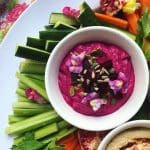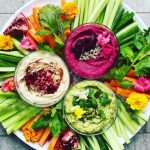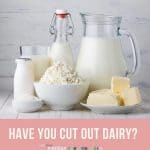What happens when we drink coffee?
Caffeine stimulates our sympathetic nervous system, which you may also know as our ‘fight or flight’ state. In this state our adrenal glands release cortisol and adrenaline, which in turn stimulate the release of glucose into the blood stream to provide us with a quick source of energy. This is all well and good if you need energy to get out of the way of danger however this is generally not the case.
When we’re sitting enjoying our coffee we’re not using all of the glucose that has been dumped into the bloodstream. Insulin comes along to draw the glucose out of our blood and return the body to homeostasis. Insulin first takes glucose to the muscles and liver. But the liver and muscles have a limit on how much they can store and any leftover glucose gets stored in our fat cells, which unfortunately have no limit in how much they can expand.
Cortisol also encourages fat to be stored around your middle and increases sugar cravings.
So, what does all this mean for your body? If you’re having 3 or more cups of coffee a day then cutting back on your coffee could help shed those hard to budge kilos.
The good:
As we all know caffeine is a stimulant. It can improve short-term brain function and help you feel more alert. Caffeine stimulates release of neurotransmitters, norepinephrine and dopamine, that help to overcome tiredness. It also increases blood flow to the brain. Studies have shown a daily coffee habit may protect you against Alzheimer’s and Parkinson’s Disease. (You can read more here)
For me, coffee can halt an impending headache. Sometimes I’ll wake and can feel a niggling headache coming on. A coffee will halt it in it’s tracks. It does this by constricting blood vessels that are often dilated during a headache or migraine.
Coffee is also high in antioxidants that fight free radical damage and ageing.
The not so good:
Coffee is acidic and inflammatory. If you are in poor health or have gut issues then removing coffee for a period of time can be very beneficial.
As mentioned caffeine switches on our ‘fight or flight’ state. With our busy modern lifestyle it’s very common to be in this state a lot of the time. If you’re suffering from stress or anxiety coffee could be making things worse.
Caffeine keeps us alert, so the downside is it can keep you awake at night if consumed in the afternoon. Caffeine in coffee has an affect on your body for 10-12 hours, peaking approximately an hour after consumption. If you’re experiencing poor sleep then ditch the afternoon coffee.
An alternative:
If you are drinking too many coffees I suggest replacing your afternoon coffee with a green tea. Green tea contains approximately 20mg caffeine versus 100mg in coffee. However, the big difference is green tea also contains the amino acid L-theanine that provides a sustained release of energy without the jitters. In fact Buddhist monks used to take green tea to enhance focus during meditation.
A common response I often get is “I don’t like green tea, it’s so bitter!”. However, there are some beautiful blends available which enhance/disguise the flavour of green tea. You could try:
- Green tea & peppermint. Perfect after a meal as it helps with digestion too.
- Green tea and ginger. Great for circulation.
- Green tea and lemongrass. Smells beautiful, very refreshing and uplifting.
Watch out for:
Be mindful of the milk you add to your latte. Avoid skim milk due to the higher sugar content. Some people don’t tolerate dairy well and as we age we produce less lactase enzymes to break down the lactose. If you’re trying a nut milk as an alternative then watch out for added nasties such as sugars, preservatives and gums.
Another tip when reducing your coffee intake is to do it gradually to avoid withdrawal headaches. If you have a coffee upon waking and then another mid morning I’d recommend you remove the early morning coffee. Instead have breakfast and then enjoy a coffee mid morning. And really enjoy it. Look forward to it, savour it, don’t just gulp it down mindlessly.
As with food you’re the best one to judge if coffee is for you. If it gives you heart palpitations and makes you jittery or anxious then coffee’s not for you. Listen to your body. However be real, five coffees a day is too much. Experiment – perhaps go coffee free for a week and see how you feel!
If you have any questions please comment below or feel free to email me.
Warm regards
Wendy




